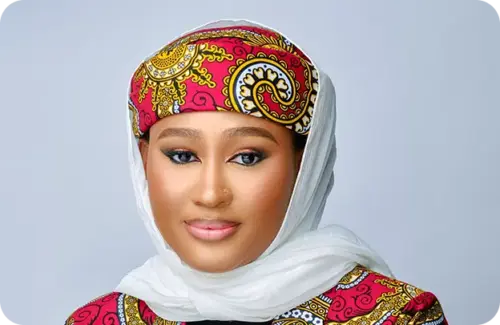
Surayyah Ahmad, a serial entrepreneur and two-time co-founder, has launched Sabou Capital—a new micro-private equity fund designed to close the investment gap for small and medium-sized enterprises (SMEs) in both Anglophone and Francophone Africa. The fund will invest between $350,000 and $1.5 million in 25 companies across sectors such as agriculture, renewable energy, climate solutions, logistics, mobility, and supply chain operations.
The fund’s name, Sabou, blends the Hausa word “Sabo,” meaning rebirth or renaissance, with a French inflection—symbolizing a fresh, inclusive approach to investing across linguistic and geographic boundaries. Unlike traditional venture capital (VC) models that favor high-growth tech startups, Sabou Capital takes a hybrid path by supporting operationally sound SMEs using technology as a tool—not a core product—to scale.
Ahmad, who previously co-founded Aduna Capital, explained that strategic differences with her co-founders at Aduna led to the creation of Sabou Capital. While Aduna continues as an angel investment group in Northern Nigeria, Sabou adopts a broader mandate, targeting SMEs in secondary cities in Nigeria, Senegal, and Côte d’Ivoire.
“Our alignment was strong on what we wanted to achieve and why, but the ‘how’ created divergence,” Ahmad noted. “That experience taught me the importance of alignment in impact scale and execution.”
Sabou Capital expects moderate returns of 2-3x, more akin to private equity norms than the 10x returns pursued by VCs. The fund aims to serve a largely overlooked segment of African businesses—SMEs with strong fundamentals and unmet demand, yet not deemed “VC-backable.”
In doing so, Sabou positions itself alongside other private equity firms like Aruwa Capital, Afrinvest, and Catalyst Fund. “We’re bridging the gap between underserved SMEs and structured capital by providing funding and hands-on support,” Ahmad said.
Central to the fund’s strategy is a gender-lens investing framework. Sabou is committed to funding women-led businesses, aiming to correct historical imbalances in access to capital. “The data shows investing in women yields double the returns,” Ahmad said. “But women still face unique barriers—from limited networks to restricted mobility—that make it harder to raise funds.”
Ahmad’s own experience as a founder in Northern Nigeria underscores this challenge. She recalled being unable to travel to Lagos to meet investors and instead raised capital locally, which ultimately led to an early exit from her previous business.
Sabou Capital offers more than just capital. It provides technical assistance to ensure portfolio companies meet high standards in governance, financial discipline, and operations before any funds are deployed. “We prepare businesses to become truly investment-ready,” Ahmad explained.
To expand its reach in Francophone Africa, Sabou Capital has appointed Christian Amouo as General Partner. Amouo brings extensive experience from launching a private equity fund in Cameroon, where he invested in four businesses—three of which continue to thrive.
While Nigeria remains a core market, Sabou is diversifying geographically by investing in Senegal and Côte d’Ivoire. These economies offer strong fundamentals, growing at over 6% annually, and benefit from a stable currency pegged to the Euro.
“With Nigeria facing inflation, currency volatility, and growth challenges, we’re leveraging our regional expertise to balance risk,” Ahmad said.
Sabou Capital is set to begin formal fundraising with a roadshow in July. The firm already has 20 startups in its pipeline and expects to shortlist two to three for its initial investments. The broader goal is to scale across West and Central Africa, nurturing SMEs into large enterprises that can eventually attract larger private equity investment or strategic buyers.

